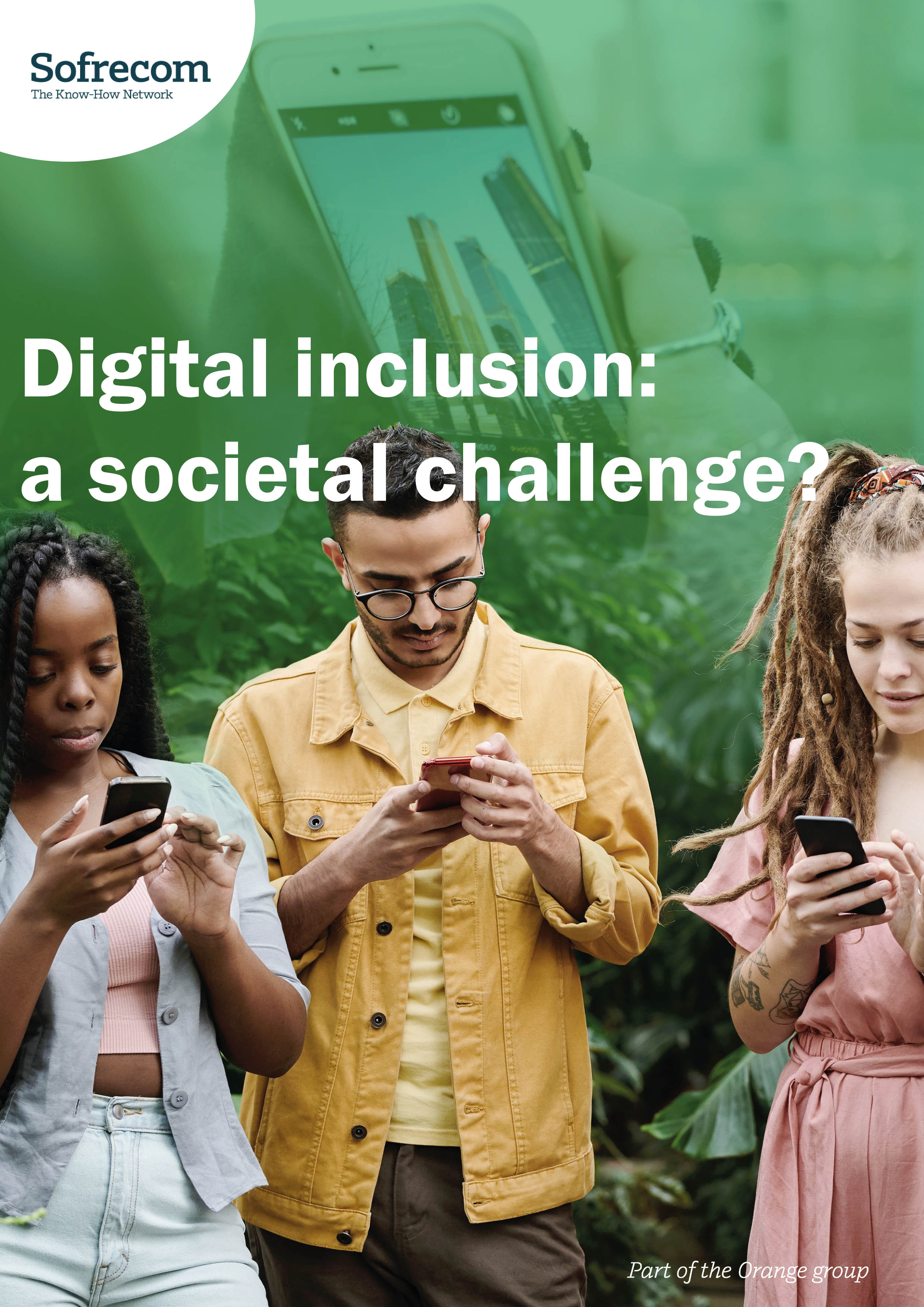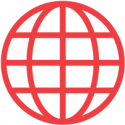
While it does address a recent societal concern, Orange's commitment to an inclusive digital society is part of its DNA. It has been clear throughout its history and development in nearly 30 countries around the world. In its new 2020-2025 strategic plan, the Group establishes it as a foundation for its growth and social responsibility.
What are Orange Group’s ambitions in terms of digital inclusion?
Inclusion is the centerpiece of the Group’s new strategic plan Engage 2025, which is aimed at taking action for digital equality, one of the two pillars of the Group’s responsible commitment to combating global warming.
Furthermore, in the context of the recent PACTE law, which asks companies to state their deeper purpose in terms of contribution to society and the planet, the Group has re-asserted its desire to set an example in society as follows: “As a trusted partner, Orange gives everyone the keys to a responsible digital world", and the resulting mission: “to ensure that digital services are well thought-out, made available and used in a more caring, inclusive and sustainable way in all areas of our business”.
Why does Orange want to consolidate its model as a company that is committed and responsible towards its employees, its customers and society as a whole?
Because we are aware and convinced that digital technology is central to multiple human activities and a powerful driver for their development. Being excluded from digital means being, in a sense, downgraded, socially and economically. In Africa, where we have been operating for several decades, we can see how closely intertwined access to digital services, such as Orange Money chosen by 45 million customers, and support for social and economic development are. The same can be said about the fields of education, training, agriculture, etc. The programs that CSR and the Orange Foundation have been rolling out for several years now confirm our belief that reducing digital inequalities requires action on inclusion for the populations.
How did you define the new action program that will serve Orange's digital inclusion ambition?
We identified the causes of the digital divide, then analyzed how to reduce inequalities across all our geographies, bearing in mind that we occupy very different positions from place to place. There are three main stumbling blocks to digital inclusion:
- Network coverage. While it is mature in Europe, there is significant room for progress in Africa and the Middle East.
- Connectivity. In the introduction to his book "Human Web", our Chairman noted that nearly 4 billion people on the planet do not use the Internet, even though 3 billion of them live in covered areas. Why is this? These billions cannot afford a smartphone, lack access to a source of energy, and lack the skills needed.
- Illectronism, aka digital illiteracy. The dialogs we hold with our stakeholders show some surprising realities: significant populations, often young, do not always know how to use digital to find a job, complete administrative procedures online, or search for information, when they use social media to develop their personal relationships with virtuosic ease.
What levers will Orange's CSR use to reduce the digital divide?
Our commitment will be organized along four structuring action lines for all Orange countries:
1. Increasing network coverage according to the needs identified in each region: covering white zones and improving flows in France, deploying 5G in Europe and thousands of new 4G sites rolled out in the MEA zone.
2. Supporting digital uses: by 2025, we will deploy at least one Orange Digital Center in each of our countries. These structures are truly emblematic of our commitment to inclusion in the digital field. They bring together in one place four building blocks of the digital inclusion value chain: education in coding, a workshop on digital prototyping for projects, a Solidarity FabLab, a training and digital manufacturing workshop for young people in integration programs yet by the digital wayside, a start-up accelerator and financial support for entrepreneurship. They will operate as a network so that a start-up can benefit from an extended ecosystem including other countries. They will gradually incorporate inclusion actions through training, deployed in recent years across the countries, such as the successful #SuperCoders concept. In addition, we will open an Orange Foundation in each country to roll out all our support programs aimed at making digital technology an equal opportunity factor for the social and professional integration of people in difficulty.
3. Offering an inclusive range in each country, extending from our first experiments in Europe. In France, we developed a solidarity offer for families in the Hauts-de-France Region faced with both social and digital precariousness: Coup de Pouce is a solidarity-driven offer including Internet/landline access, a recycled PC and free training, all at a very low price. Today, we are extending this offer at the national level. In Spain, the Gigas Solidarios offers customers the opportunity to pass on their unused data to families in precarious situations to whom Orange provides free Internet access and a fully equipped tablet.
4. Developing an affordable smartphone offer, at less than $20 for a 3G and less than $40 for a 4G in MEA, for example. In Europe, we will position ourselves on the very dynamic reconditioned mobile telephone market.
You also want to capitalize on the momentum around Orange employees’ commitment to solidarity...
More and more of our employees are supporting our efforts to build digital inclusion. Their mobilization is remarkable! To wit, 8,000 volunteers work for the Orange Foundation and within the first two Orange Digital Centers opened in Tunisia and Senegal. In our stores, all over the country, they run digital workshops. With the launch of the strategic plan Engage 2025, their commitment to solidarity is taking on new meaning. We want to better support and foster this dynamic of digital skills sharing through skills sponsorship, local-level volunteering, volunteer training and other formats yet to be invented.
Is your digital inclusion policy tailored by country?
To give clarity to a long-standing commitment and increase the effectiveness of our efforts, we have decided to scale up our inclusion policy gradually. Nevertheless, in implementing initiatives, each country relies on its dialog with its stakeholders to meet the expectations and needs specific to its environment, its partners and the authorities. Moreover, the innovation dynamic that irrigates the countries does not always originate from the Group's head office. The Orange Digital Center concept was developed in Tunisia. And, in many ways, Orange Money, deployed in 14 countries in Africa, was the forerunner to Orange Bank!
Do you measure your digital inclusion actions for effectiveness?
For almost 3 years, we have been working to measure, particularly in Africa and France, the socio-economic impact not only of our core business actions, but also of our CSR commitments. The results are stated in percentage points of GDP. They are often significant: Orange's overall economic footprint is, for example, estimated at more than 10 percentage points of GDP in Ivory Coast and Senegal. These measures are as useful to us as they are to the stakeholders who support our efforts. They enable collective awareness.
The mobilization across our organization is another valuable indicator of the value of our historic commitment to an inclusive society, a commitment deeply embedded in the company’s culture. We are all convinced that digital technology is a factor in the development of individuals, populations, companies and countries. At a time when the fight against digital inequality has become a societal issue, our assessment in this area bolsters our belief and makes us want to go even further.
Extract from our white paper: Digital inclusion, a societal challenge?







